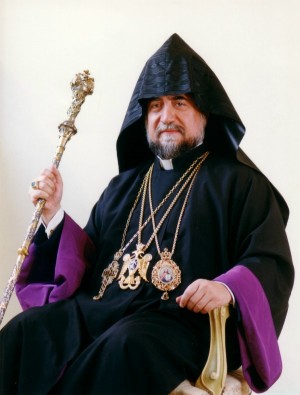Head of Armenian Church files lawsuit to get back cathedral seized by Turks in genocide

The worldwide leader of the Armenian Church has said that a lawsuit filed in Turkey to recover its ancient headquarters is merely the first legal step towards reclaiming all Armenian property seized by the Turks.
Aram I, Catholicos of the Holy See of Cilicia, told the New York Times that if Turkey rejects the lawsuit it will "deepen the divide" between Turkey and the Armenian diaspora.
About 10 million Armenians live in the diaspora. They have been marking a century since the Armenian genocide began on April 24, 1915. Between 800,000 and 1.5 million people were killed by Ottoman forces.
Turkey rejects the term "genocide" to describe the slaughter and insists the deaths were the results of civil conflict. Turkey recently recalled its envoy to the Vatican after Pope Francis used the term during an Armenian-rite Mass at St Peter's, Rome.
Aram I, 68, has filed a lawsuit at the Turkish Constitutional Court demanding the return of the Spiritual Centre of the Catholicosate in Sis in the Kozan district.
The centre, founded in 1293, included a cathedral and monastery. Many thousands of Armenian properties were seized and plundered during the last days of the Ottoman Empire. The centre was reestablished in 1930, in Antelias, Lebanon and Aram I is the first Leader of the Catholicosate of Cilicia who was born in Lebanon.
The next step will be for the descendants of those who were killed to reclaim their inheritance.
Aram I told the US newspaper that he had consulted 30 legal experts about the suit.
The Church still believes it must obtain international recognition for the genocide. But he added: "After 100 years, I thought it was high time that we put the emphasis on reparation."
He continued: "This is the headquarters of the church. This is the first legal step. That will be followed by our claim to return all the churches, the monasteries, the church-related properties and, finally, the individual properties. We should move step by step.
"Forgiveness comes when there is confession, repentance, acceptance of sin. Reconciliation is part of our human faith and values, but first of all, Turkey must reconcile with its own past."
The mayor of Kozan, Musa Ozturk, is reported to have responded: "Not even an iota of land is to be handed over to anyone."











